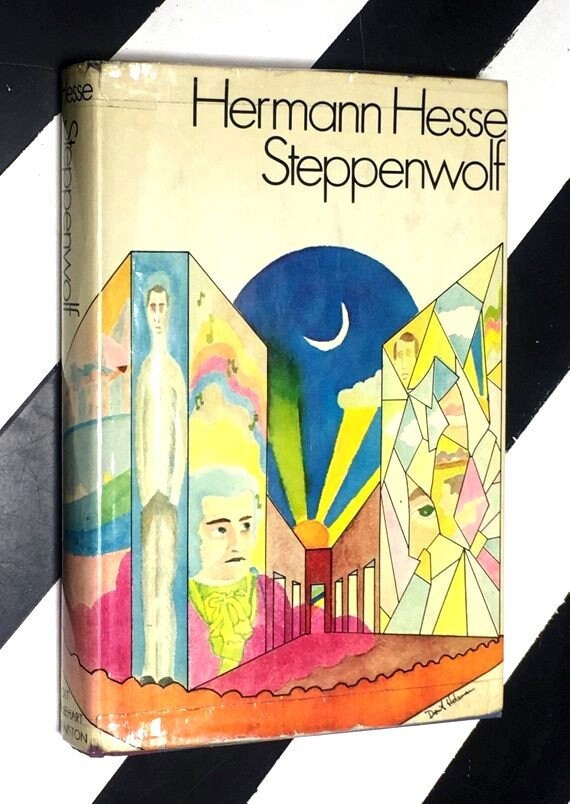
For mad people only.” From that point we enter the story itself, which is entitled “On Steppenwolf: A Tract (for mad people only.)” This section shows us a depressed Haller walking the streets and railing against the futility of the world when his attention is captured by a sign for a theater that announces: “Admission not for everybody. The second part is labeled “Harry Haller’s Notebooks (for mad people only),” and is from Haller’s perspective. It explains how this man’s limited interaction with Haller intrigued him and made him want to tell the story. He comes into possession of Haller’s manuscript and explains what it is that made him go to the trouble of publishing it, despite-as he tells us-he ordinarily would not. (Though if one missed the first part on wouldn’t be at a terrible loss.) The first part is an “Editor’s Preface” as told by the nephew of Harry Haller’s landlady. The organization of the book is a bit unconventional, but it works both in terms of being easy to follow and in providing a multi-dimensional story. Still, you’ll remember that I pointed out that Hermione played cupid and set Haller up with her friend Maria, so it’s fascinating that she intends to make him fall in love with her.) (It’s not so surprising that Haller will fall for Hermione. This sets up an intense tension that one eagerly follows through the rest of the book.

One of the fascinating intrigues of the book is that Hermione early on promises that she will get Haller to do two things: fall in love with her and something else which I’ll leave to the reader but which seems even more unfathomable. If he can find a way to get beyond that insistence, he can transcend his unhappiness. While the book opens in a way that makes one think it might be an indictment of modern society, what it really shows is how Haller’s unhappiness comes from insisting that society should be fitted to his worldview and proclivities. She teaches him to dance, introduces him to a lover, and exposes him to the delights of frivolity. She loves Jazz, enjoys dancing, and doesn’t like to be too serious or analytical about anything. This disjoint between his individual nature and society’s has made him depressed to the point of being suicidal-but he hasn’t been able to bring himself to commit the act, and has instead given himself a deadline.Įnter Hermione (note: her name seems to be rendered “Hermine” in some editions), a woman who is in many ways the exact opposite of Haller. He has pacifist tendencies amid strongly nationalist peers.

He finds the prevailing music, art, and entertainment to be trivial and low-brow.

Harry Haller lives out-of-step with virtually every aspect of modern society.


 0 kommentar(er)
0 kommentar(er)
